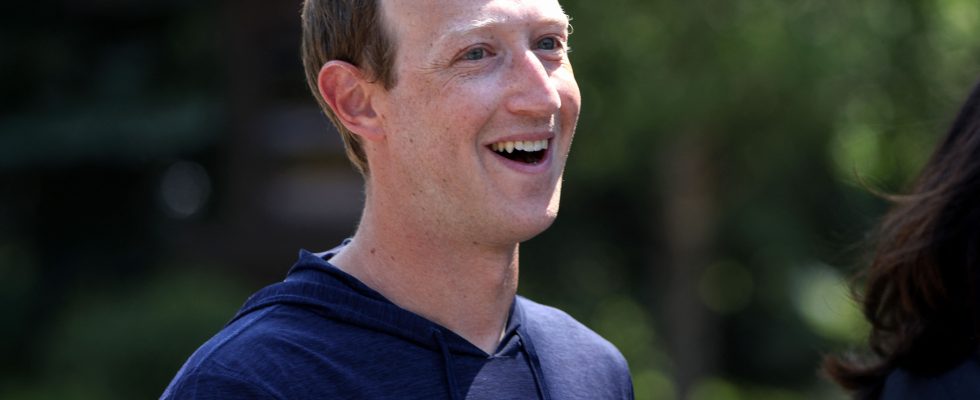In one year, the positions of Mark Zuckerberg and Elon Musk have been brutally reversed. Last year, the boss of Tesla and SpaceX electrified Internet users by buying the social network Twitter. After the Cambridge Analytica earthquake, Zuckerberg was facing the most formidable threat in the connected world of social networks: that of seeing his patiently built empire become outdated. Because, as their parents and grandparents tame Facebook, young people flee it at full speed. Between 2015 and 2022, the population of Americans aged 13 to 17 using the platform plummeted from 71 to 32 percent, according to the Pew Research Center.
Meta maintains a strong foothold among teenagers and young adults thanks to Instagram, which he had the foresight to buy in 2012 for a billion dollars. But even there, he now has to deal with rival TikTok, whose success in these age groups is as rapid as it is massive. What give insomnia to “Zuck”, as this target is strategic for his group whose good health depends totally on advertising. As Cyril Vart, executive vice-president of EY Fabernovel, recently pointed out in our columns: “Young populations are the most sought after by advertisers”. However, you must not sell the skin of the bear before having killed it. Especially when “the bear” is such a powerful machine as Meta. Because in 2023, the situation has changed. Elon Musk is disillusioned on the Twitter file. The revival of the network turns out to be much more difficult than expected.
Zuckerberg and Dorsey on the hunt for the blue bird
The idea of switching the platform to a premium model was brilliant, however. Despite its small number of users compared to Facebook or LinkedIn, Twitter has a strong influence on the global conversation. However, the group never succeeded in monetizing it properly. More broadly, in the sector of social networks, it is the whole free model backed by advertising that is running out of steam, as its excesses become more visible, in particular the promotion of divisive, hateful and shocking content to fuel the ” show”. In 2023, users are also more likely to pay for quality digital experiences. Witness the success of video and audio streaming platforms (Netflix, Spotify, etc.) and the decline of piracy.
Elon Musk, however, frightened many advertisers with his abrupt decision-making and questionable jokes. The free offer on the blue bird is gradually degraded in order to push Internet users towards the new paid subscription Twitter Blue. But the latter has serious shortcomings, since it allows any account, including those spreading disinformation, to be “certified” and therefore promoted by the platform. Many users are now considering jumping ship.
Meta, who was aware of this, immediately jumped at the opportunity. The group has just launched this July 6 Threads, a new application of “written conversations”, backed by Instagram, with operation very similar to that of Twitter. An outing that starts with a bang: after 7 hours, ten million people had already registered on the app, while it is currently only available in the United States. Zuckerberg is not alone in wanting to shoot the prancing bird: Jack Dorsey, the former founder of Twitter himself, is developing a competing platform called Bluesky.
The creator of Meta, however, has a major advantage in the sector: the size of his group. Its billions of dollars and tens of thousands of employees will probably not be enough to make its main network, Facebook, the darling of young people. But it can perfectly operate different platforms targeting so many audiences. This is the strategy that has made the success of Match, the dating cador, which houses under its umbrella a dozen brands – Tinder, Hinge, Meetic, OKCupid… -, as well as a myriad of confidential sites, addressing all to separate markets. After having made the mistake in the past of wanting to aggregate everything in Facebook, Meta is right today to develop a portfolio of targeted products. Because basically, even if young people like innovative applications, what they most eagerly seek is a playground unknown to their parents.
